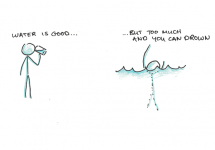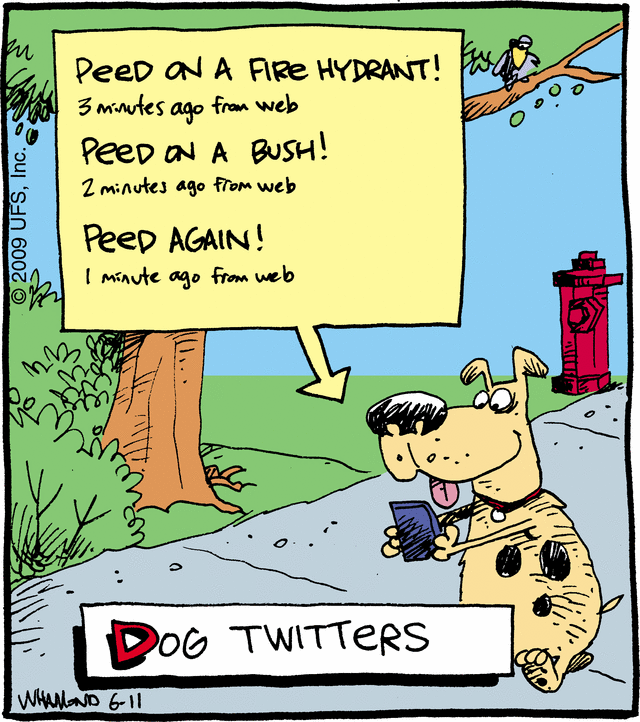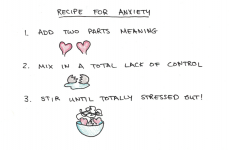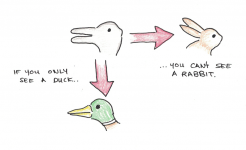Existential Therapy: What Can Death Teach Us About Life?
By GABRIELLE GAWNE-KELNAR, The Therapist Within
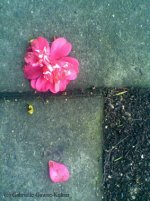


The footpaths were littered with camellia blossoms this morning, as I walked around the streets. Perfect pink blooms dropped onto the pavement.
I heard a saying, once, about this phenomenon. These flowers, falling mid-bloom from the tree, echoes the way we’ll all fall from the tree of life one day.
Unexpectedly (even when it’s expected). And often with a sense of ‘too soon.’
So how might we prepare for this?
Are there things that could make it easier when our time (inevitably) comes?
And what might our death actually have to teach us about living?
It’s funny how we often prepare for other life events like exams or performances, court cases or giving birth. Yet when it comes to one of our most powerful life events – our death – we’d often rather look the other way.
Do you find yourself turning away like this? Pretending, somehow, that it won’t happen?
Existential therapy encourages us to brave this stuff. To look into the face of it and see what’s there. To truly know our own death as one of the ‘four existential givens’ or the four inevitabilities of our very existence (death, freedom/responsibility, isolation and meaning/meaninglessness). Existential therapy wants to know if understanding these ‘givens’ might change the way we’d choose to live.
So what comes up for you if you just take a moment or two right now and consider your own death?
It’s not always easy…
And if there’s fear there for you, perhaps it’s worth asking yourself exactly why that is (for maybe these very fears or anxieties can be pointers to a richer life).
For instance, is it hard to think about death because something remains undone – some calling, some passion, some experiment in living? (And if so, what could you do about that?)
Or is it perhaps more about the love you have for the people in your life? (And if so, how might you express that love more fully?)
What other values or touchstones are there for you in these fears about death? And, by revealing what matters to you in this way, could death itself help you craft a life that’s more meaningful? A life that’s more alive.
Similarly, another part of the mythology around camellias points to the living end of the spectrum. For they also represent a passionate life lived in a blaze of colour. And they
reflect a sense of evanescence, of transience – those qualities which beauty itself is said to be based on.
So these flowers remind us to live as well as that we will die.
They remind us that ‘life is in flux’ and that ’death is what makes life special’ (as this beautiful video animation puts it).
And perhaps they can also remind us that, though it seems like dying is lonely business, that in another sense, simply because we will all go through it, we’re all in this together…
Photos: Gabrielle Gawne-Kelnar
Gabrielle Gawne-Kelnar (Grad Dip Counselling & Psychotherapy) is a Sydney psychotherapist in private practice at One Life Counselling & Psychotherapy. Gabrielle also co-facilitates telephone support groupsfor people who are living with cancer, for their carers, and for people who have been bereaved through a cancer experience. She is the editor of a journal on counselling and psychotherapy and she provides regular therapeutic updates on facebook and Twitter @OneLifeTherapy.
By GABRIELLE GAWNE-KELNAR, The Therapist Within



The footpaths were littered with camellia blossoms this morning, as I walked around the streets. Perfect pink blooms dropped onto the pavement.
I heard a saying, once, about this phenomenon. These flowers, falling mid-bloom from the tree, echoes the way we’ll all fall from the tree of life one day.
Unexpectedly (even when it’s expected). And often with a sense of ‘too soon.’
So how might we prepare for this?
Are there things that could make it easier when our time (inevitably) comes?
And what might our death actually have to teach us about living?
It’s funny how we often prepare for other life events like exams or performances, court cases or giving birth. Yet when it comes to one of our most powerful life events – our death – we’d often rather look the other way.
Do you find yourself turning away like this? Pretending, somehow, that it won’t happen?
Existential therapy encourages us to brave this stuff. To look into the face of it and see what’s there. To truly know our own death as one of the ‘four existential givens’ or the four inevitabilities of our very existence (death, freedom/responsibility, isolation and meaning/meaninglessness). Existential therapy wants to know if understanding these ‘givens’ might change the way we’d choose to live.
So what comes up for you if you just take a moment or two right now and consider your own death?
It’s not always easy…
And if there’s fear there for you, perhaps it’s worth asking yourself exactly why that is (for maybe these very fears or anxieties can be pointers to a richer life).
For instance, is it hard to think about death because something remains undone – some calling, some passion, some experiment in living? (And if so, what could you do about that?)
Or is it perhaps more about the love you have for the people in your life? (And if so, how might you express that love more fully?)
What other values or touchstones are there for you in these fears about death? And, by revealing what matters to you in this way, could death itself help you craft a life that’s more meaningful? A life that’s more alive.
Similarly, another part of the mythology around camellias points to the living end of the spectrum. For they also represent a passionate life lived in a blaze of colour. And they
reflect a sense of evanescence, of transience – those qualities which beauty itself is said to be based on.
So these flowers remind us to live as well as that we will die.
They remind us that ‘life is in flux’ and that ’death is what makes life special’ (as this beautiful video animation puts it).
And perhaps they can also remind us that, though it seems like dying is lonely business, that in another sense, simply because we will all go through it, we’re all in this together…
Photos: Gabrielle Gawne-Kelnar
Gabrielle Gawne-Kelnar (Grad Dip Counselling & Psychotherapy) is a Sydney psychotherapist in private practice at One Life Counselling & Psychotherapy. Gabrielle also co-facilitates telephone support groupsfor people who are living with cancer, for their carers, and for people who have been bereaved through a cancer experience. She is the editor of a journal on counselling and psychotherapy and she provides regular therapeutic updates on facebook and Twitter @OneLifeTherapy.

